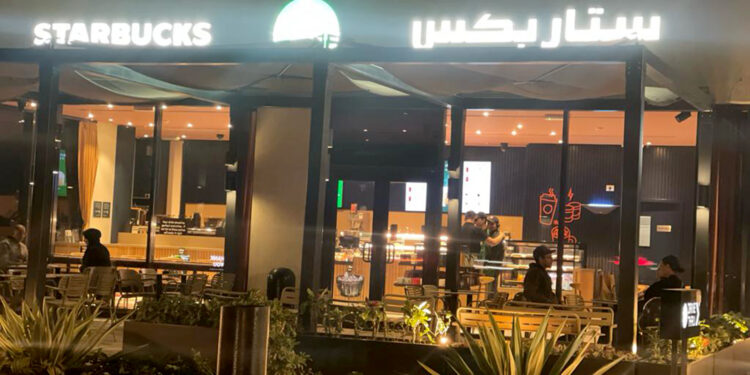Alshaya Group, which operates in the retail sector in the Gulf region and is the Starbucks franchisee in the Middle East, intends to lay off more than two thousand employees due to the consequences of the consumer boycott linked to the aggression on the Gaza Strip, according to what Reuters reported, citing informed sources.
The sources – whose identity was not indicated by Reuters because the matter has not been announced yet – added that the process of eliminating jobs that began on Sunday aims to lay off about 4% of the total workforce at Alshaya, which numbers about 50,000 people, and is mostly concentrated in Starbucks branches in the Middle East and North Africa.
One source stated that the boycott campaigns led to difficulties in the company’s working conditions.
The stock fell
Starbucks shares – listed on the US Nasdaq index – fell 1% to $91.50, at the time of writing the report.
Alshaya Group said in a statement, “As a result of the ongoing difficult business conditions over the past six months, we have made an unfortunate and very difficult decision to reduce the number of associates in Starbucks cafes in the Middle East and North Africa.”
She continued, “We will work hard to ensure that we provide our colleagues who are leaving and their families with the support they need, and in this context we would like to express our sincere thanks for their hard work and dedication to Alshaya Group and the Starbucks brand.”
A company spokesperson told Reuters, “We sympathize with the Starbucks employees who will be laid off, and we want to thank them for their contributions. Starbucks remains committed to collaborating closely with Alshaya to achieve long-term growth in this important region.”
Alshaya Group
Alshaya Group, founded in Kuwait, is one of the largest retail franchisees in the region, with the operating rights to popular Western brands such as the Cheesecake Factory and Shake Shack.
It also has the rights to operate Starbucks cafes in the Middle East since 1999, and the Starbucks unit operates about two thousand outlets in 13 countries in the Middle East, North Africa and Central Asia.
Three informed sources told Reuters last month that the American direct investment company Apollo Global Management is in talks to buy a stake in Starbucks’ business.
Western brands have been harmed by largely spontaneous popular boycott campaigns in protest against the war waged by Israel on the Gaza Strip, and companies’ vocal support for the occupation army, including Starbucks.
Starbucks stated – last October – following the boycott campaigns that it is a non-political organization, and denied rumors that it provides support to the Israeli government or army.
It also said – in January – that Israel’s war in Gaza had harmed its business in the region, which led to first-quarter results falling short of expectations.
Starbucks added that sales were greatly affected by the “conflict” in the Middle East and the United States, where some consumers organized protests, launched boycott campaigns, and demanded that the company take a position on this issue.
In January, Alshaya Group announced the reduction of its operations in Egypt due to the country’s ongoing economic problems, which included devaluing the currency several times and inflation reaching a record level. The group did not reveal which stores it will close or when it will close them.
Extended province
The boycott extended to the largest Starbucks market in the United States when the coffee shop group found itself in trouble after a tweet from the group’s workers’ union expressing its solidarity with the Palestinians. It took measures against the union, which fueled an anti-it campaign on social media, and pushed a number of the company’s workers who are members of the union. Protests were launched against it in more than 200 branches in the United States.



